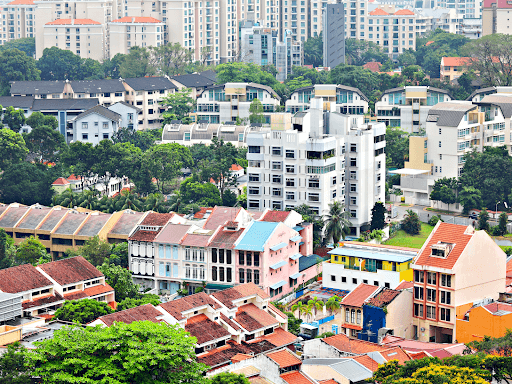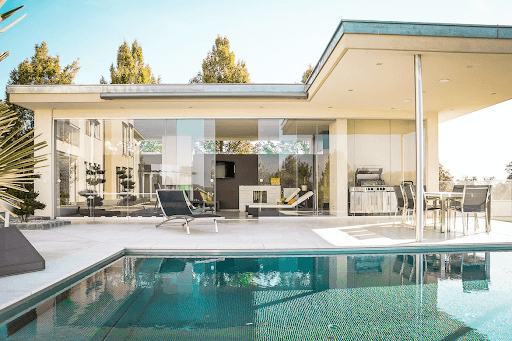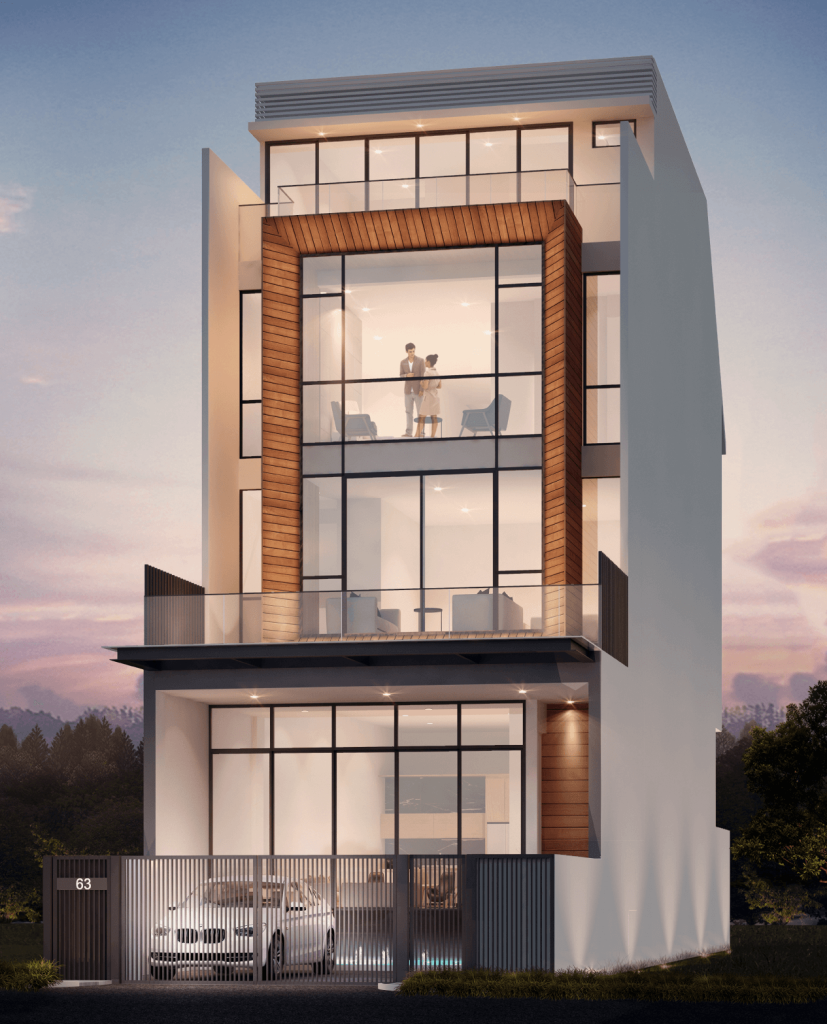
Amidst Singapore’s land-scarce and dense population with the majority of residential buildings reaching new heights, one may still be able to find numerous residence dwellings drawn up evenly and inhabited by neighbours.
These dwellings are known as terrace houses, also referred to as row houses, and are also a type of private residential housing in Singapore. Terrace houses are also the entry point into one’s journey into the landed property sector. The term terrace houses were coined by the Urban Redevelopment Authority (URA) in the early 1990s to describe the terrace-style housings built during the 1950s and 1960s.
Terrace houses consist of at least three houses connected by a common wall. These houses can also be developed in approved mixed-landed dwelling zones provided the site fulfils the minimum requirements set out by URA which we will cover below. Furthermore, terrace houses must comply with the permitted envelope control guidelines in the zonings gazetted by the URA.
Terrace Houses come in two varieties. Type 1 terrace houses are typically larger, with a nominal plot size of 150 square metres and a plot width of 6 metres. The required plot size for a Type 1 corner terrace house is 200 square metres with a plot width of 8 metres. On the other hand, type 2 terrace houses necessitate a minimal plot size of 80 square metres and a minimal plot width of 6 metres. Type 2 corner terrace dwellings are required to have a minimum land width of 8 metres but their land size will be the same as type 1 terraces, at 150 square metres.
What are some advantages and disadvantages of living in a terrace house?
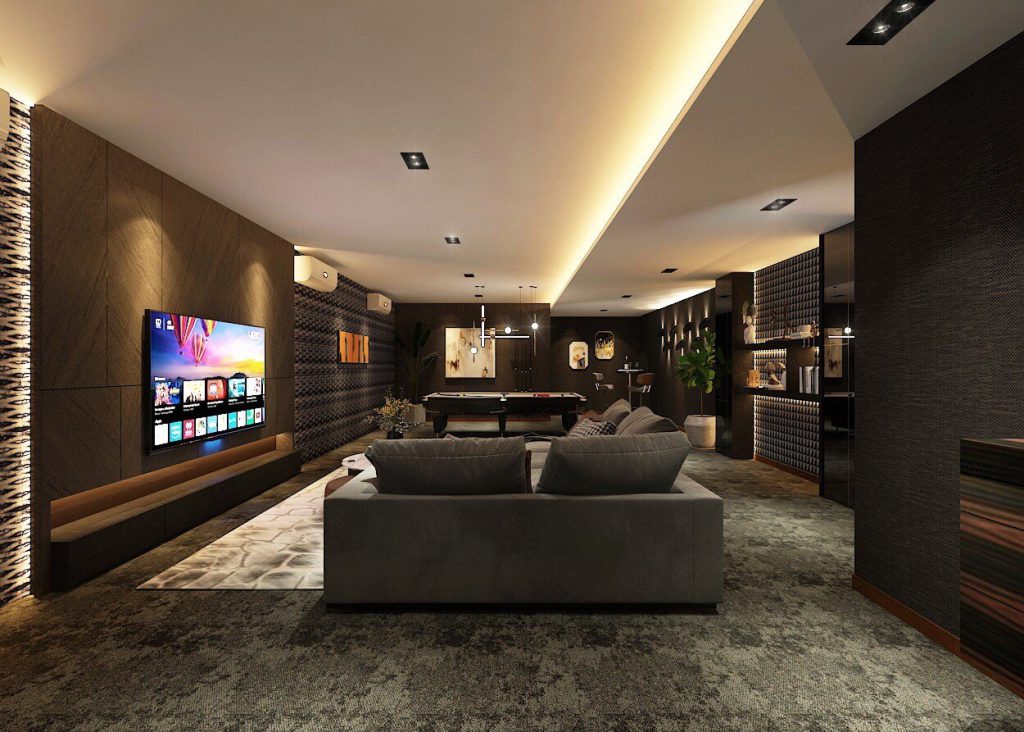
The advantages of living in a landed property can sometimes outweigh that of living in a condo. Firstly, space. Being in land-scarce Singapore, space can always be at a hefty premium. The outdoor areas in a terrace house will be ideal to fire up a BBQ, have alfresco dining, and hosting larger groups of family and friends when they come over. Secondly, privacy, both internal and external. The moment one reaches homes and shuts the front gates, they won’t need to worry about having anyone busy bodying in their space. In addition, with large build-in areas giving space for more dedicated en-suite bedrooms, there will be less squabbling over who gets to use the bathroom first during the daily rush hours. Also, no longer are the children’s bedrooms directly off the living room. They are now two floors up and away, giving one the privacy they truly deserve. Last but not least, is freedom. The freedom to modify, redesign and rebuild to suit the needs in the future.
Since nothing is perfect, there are bound to have cons to living on a landed property. Firstly, insufficient lighting. Terrace houses are regarded as having inadequate lighting and ventilation because they only have windows on their narrow ends. As a result, one may consider looking for terrace houses with air wells and voids. Secondly, security. As the saying goes, low crime doesn’t mean any crime, hence it is recommended to install burglar alarms and CCTVs in your home. Lastly, lack of facilities, unlike a condominium where one can enjoy the luxury of a lap pool, a fully equipped gym, and the like, there isn’t many facilities a terrace house or a landed property, in general, can offer unless one has excessive land to be able to construct a pool or sacrifice a room and have it converted to a personal gym.
Why are terrace houses less expensive?
Terrace houses are often less expensive since they have reduced plot levels and are situated in mixed-land housing regions. Standalone and exclusive homes, such as detached and landed residences, on the other contrary, have broader spatial coverage and tend to command premiums.
Are terrace houses a smart investment?
Terrace houses, like other landed properties, are a fantastic investment option due to their low supply and high demand. Therefore, the prices of these homes are bound to increase over time.
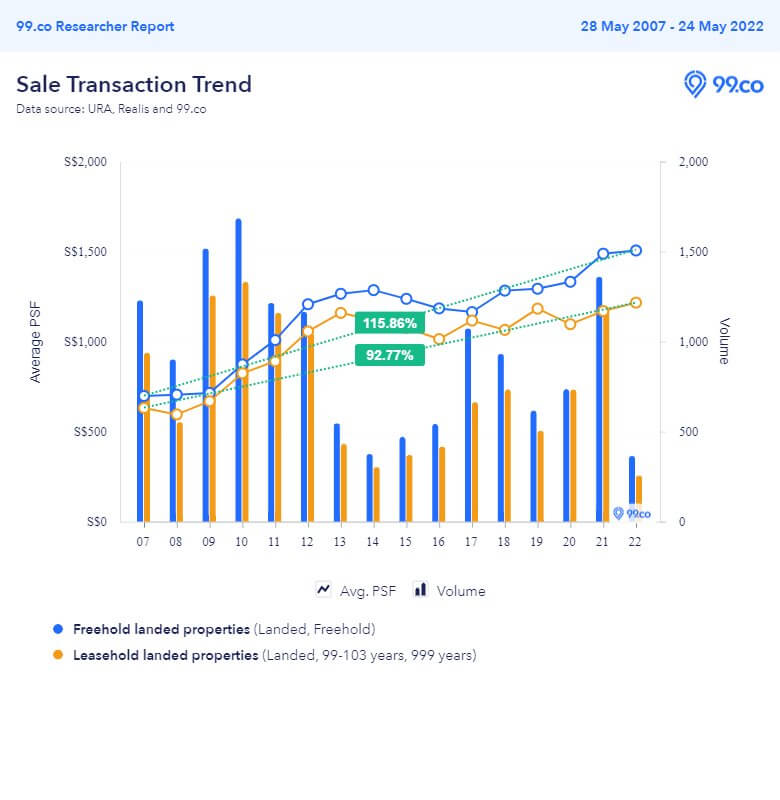
Source: 99.co
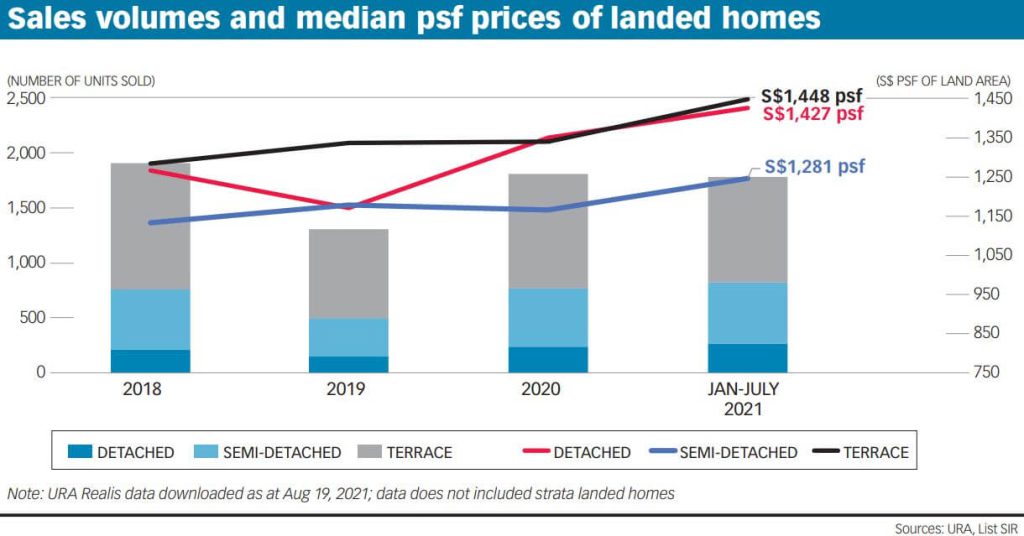
Source: The Business Times
Are you qualified to purchase these landed residential properties?
Every Singaporean is eligible to purchase and possess a landed property in Singapore. Foreigners, including Singapore PRs, are not permitted to purchase landed properties in Singapore unless they are granted approval by the Singapore Land Authority’s (SLA) Land Dealings Approval Unit (LDAU).
Each application is evaluated on an individual basis, taking into account, but again not restricted to, the following points: you must be a Singapore permanent resident for at least 5 years and provide a remarkable economic contribution to Singapore. This is calculated by taking into account criteria such as your taxable gross salary in Singapore.
Discover Luxury Homes Built By An Award-Winning Developer
Sevens Group is a leading real estate development company with a proven track record of more than 10 years in the industry with over 100 landed developments completed to date. Sevens Group is consistently committed and passionate to developing superior quality standard, modern, and state-of-the-art real estate projects.
Looking for your dream home? Contact our Developer Sales Team today and they will be happy to be of service. In the meantime, keep your eyes peeled for our next article.


